41 reading food labels diabetes
PDF What Can I eat? - American Diabetes Association list of everything that is in the food. They are listed by the highest amount to the least. If the first word in the list is sugar, then there is more sugar in the food than anything else. Reading Food Labels Food labels can help you choose what foods to eat. Use the labels at right to find the best choice. 1-800-DIABETES (1-800-342-2383) www ... › articles › 317355Type 2 diabetes food list: What to eat and avoid A person with both celiac disease and type 2 diabetes should check food labels to ensure the food they buy is free from gluten. Learn about alternatives to gluten here. Diabetes and obesity
Reading Food Labels | ADA - American Diabetes Association Reading labels can help you find these hidden sources and compare the sodium in different foods. Whether you have diabetes or not, 2300 milligrams (mg) or less per day is the general recommendation. If you have high blood pressure, talk with your health care team to find out the best goal for you.
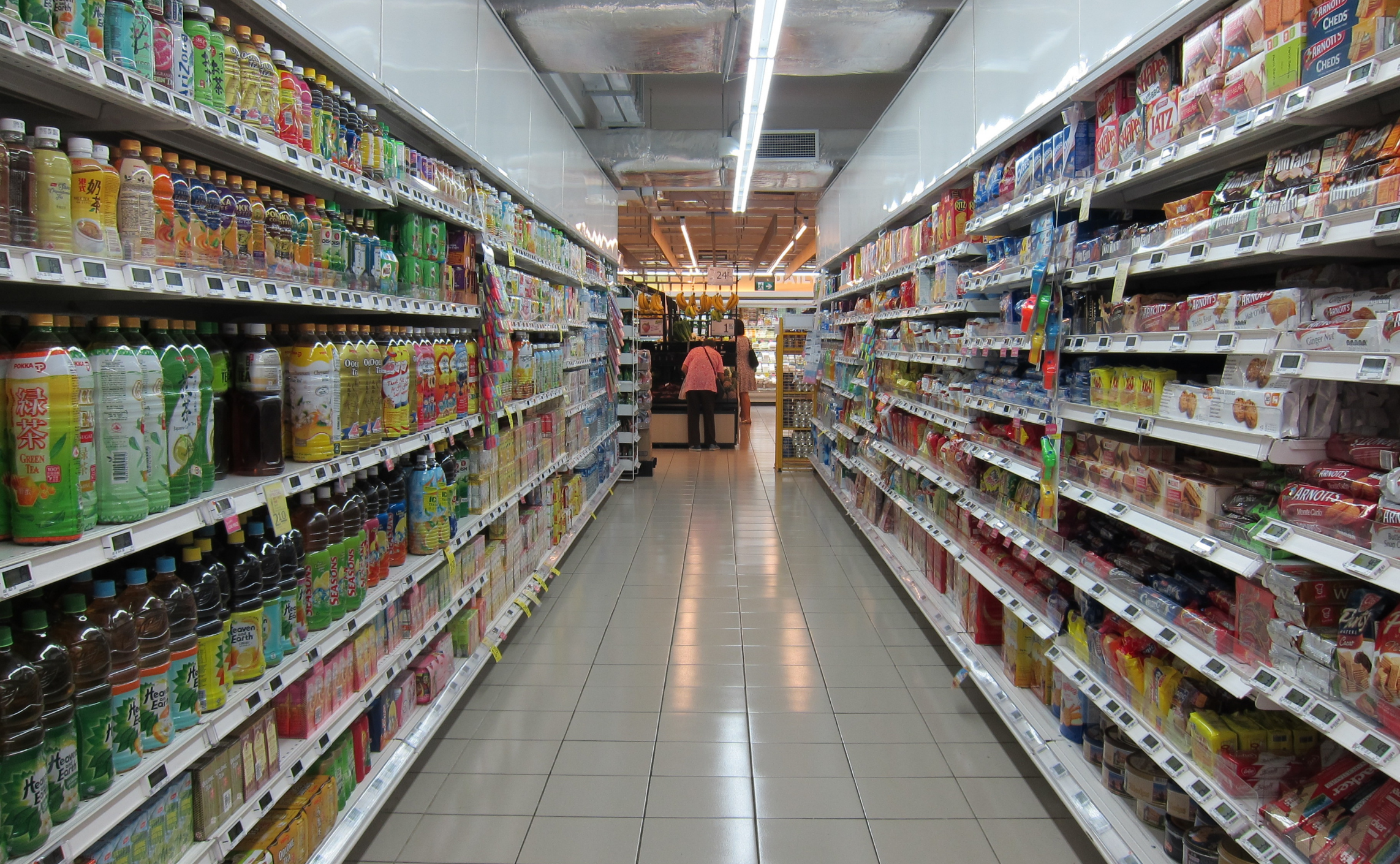
Reading food labels diabetes
Reading Food Labels, The Most Basic Tool in Diabetes Management What are the 6 steps to reading food labels? Step 1: Examine serving sizes and calorie counts per serving. The serving size determines all of the information on a food label. Keep in mind that one serving may be significantly smaller than you believe. For example, if you eat two portions, you've consumed twice as many calories, fat, and salt. Food Labels | CDC - Centers for Disease Control and Prevention If you eat the whole thing, you are eating 8 times the amount of calories, carbs, fat, etc., shown on the label. Total Carbohydrate shows you types of carbs in the food, including sugar and fiber. Choose foods with more fiber, vitamins, and minerals. Choose foods with lower calories, saturated fat, sodium, and added sugars. Avoid trans fat. How to Read Food Labels When You Are Diabetic - Diabetics Weekly Study the Carbohydrate Content in Detail This is the most important aspect of how to read food labels when you have diabetes. The total amount of carbohydrates breaks down into complex carbohydrates, sugar, and fiber. Don't hone in on zero-sugar foods, as foods like milk and fruit contain natural sugars.
Reading food labels diabetes. Reading labels | Diabetes UK Key points Always look at the 'total carbohydrate' on the label when carb counting. This will make sure you are counting both the complex (starchy) and simple (sugary) carbs in your food. Both will raise your blood glucose (blood sugar) levels, and need to be matched with insulin. Making Sense of Food Labels | ADA - American Diabetes Association Reading labels can help you find these hidden sources and compare the sodium in different foods. Whether you have diabetes or not, 2300 milligrams (mg) or less per day is the general recommendation. If you have high blood pressure, talk with your health care team to find out the best goal for you. List of ingredients › diseases-conditions › foodFood allergy - Symptoms and causes - Mayo Clinic Dec 31, 2021 · A food intolerance or a reaction to another substance you ate may cause the same signs and symptoms as a food allergy does — such as nausea, vomiting, cramping and diarrhea. Depending on the type of food intolerance you have, you may be able to eat small amounts of problem foods without a reaction. diabetes.org › reading-food-labelsReading Food Labels | ADA - American Diabetes Association The Nutrition Facts labels on foods are really the key to making the best choices. We'll cover the basics so that these labels make shopping easier for you. You've heard it all. From carb-free to low-carb, to whole and empty carbs, it's hard to know what it all means. Blood sugar highs and lows aren't always easy to understand.
PDF TO CARE 4 YOURSELF READING A NUTRITION FACTS LABEL - novoMEDLINK diabetes and prediabetes.1 When we think of sodium sources, we often think of table salt. But many of the foods we eat contain sodium. Reading the label can help you compare the amount of sodium in foods so that you can choose lower-sodium options. Nutrition Facts 8 servings per container Serving size 2/3 cup (55g) Calories 230 5% 10% 0% 7% 13% 14% › en › ArticlesUnderstanding Food Labels in Canada - Unlock Food Oct 15, 2019 · As of December 2005, all major food companies introduced the new nutrition label on their packaged foods. The main part of the new label is the Nutrition Facts Table, which gives you the following information: Calories and 13 nutrients: Fat, Saturated fat, Trans fat, Cholesterol, Sodium, Carbohydrate, Fibre, Sugars, Protein, Vitamin A, Vitamin C, Calcium and Iron. PDF Label reading basics for diabetes - Veterans Affairs Label Reading Basics for Diabetes Nutrition and Food Services (05/2020) Serving Size • The serving size is the portion size used for all the values on the label. • Different foods have different serving sizes. • The serving size on this label is 2/3 cup. Servings per Container • Indicates the number of Understanding food labels | Diabetes UK Check the ingredients list - if syrup, invert syrup, cane sugar, molasses or anything ending in 'ose' is within the first three ingredients, this suggests the food contains more added sugar. Choose an alternative if possible, or be mindful of the portion you eat. Check the fibre content on the back of pack label.
Decoding Diabetes: How to Read Nutrition Labels | Accu-Chek The calories in the foods you eat are made up of fat, protein, and carbohydrates. Nutrition labels are typically made based on the assumption that you have a daily diet of 2,000 calories (kilocalories). Some labels will have a footnote that expand on this concept, providing numbers for both 2,000 and 2,500-calorie (kilocalorie) diets. Nutrients › diseases-conditions › diabetesDiabetes - Diagnosis and treatment - Mayo Clinic Oct 25, 2022 · A reading of more than 200 mg/dL (11.1 mmol/L) after two hours means you have diabetes. A reading between 140 and 199 mg/dL (7.8 mmol/L and 11.0 mmol/L) means you have prediabetes. If your provider thinks you may have type 1 diabetes, they may test your urine to look for the presence of ketones. Understanding food labels fact sheet - NDSS Labels on packaged foods provide information that can help you make healthier food choices. Making healthy food choices can help you to manage your diabetes, weight, and overall health. Understanding how to read food labels can help you choose foods with more fibre and less saturated fat, salt (sodium), added sugars and kilojoules. Reading Food Labels | ADA - adadev.diabetes.org Sometimes it feels like food labels are written in another language. We're here to help you decipher them so you can make the most informed eating decisions. Reading Food Labels | ADA
› publication › ppic-statewide-surveyPPIC Statewide Survey: Californians and Their Government Oct 27, 2022 · Key Findings. California voters have now received their mail ballots, and the November 8 general election has entered its final stage. Amid rising prices and economic uncertainty—as well as deep partisan divisions over social and political issues—Californians are processing a great deal of information to help them choose state constitutional officers and state legislators and to make ...
Reading Food Labels When You Have Diabetes | Kaiser Permanente Start with the "% Daily Value" column on the food label. A food is considered low in a specific nutrient (such as fat, saturated fat, carbohydrate, or sodium) if it has 5% or less of the daily value. A food is considered high in that nutrient if it has 20% or more of the daily value. Watch out for health claims on food labels.
Reading Food Labels When You Have Diabetes - WebMD Being able to read and understand food and nutrition labels is essential, especially for those with diabetes. WebMD explains how to interpret the Nutrition Facts label on your packaged foods.
Reading food labels & nutrition panel - Diabetes Queensland Reading food labels When choosing packaged food, choose products with: lower energy (kilojoules) if you are trying to lose weight lower total and saturated fat lower sugar lower sodium higher fibre Every food label tells a story and the Nutrition Information Panel simply gives you the facts.
› food-labels › art-20047648Reading food labels: Tips if you have diabetes - Mayo Clinic Food labels can be an essential tool for diabetes meal planning. Here's what to look for when comparing food labels. By Mayo Clinic Staff When you live with diabetes, your diet is a vital part of your treatment plan. Of course, you know what you're eating — a turkey sandwich, a glass of skim milk, a sugar-free fudge pop.
Health Tip: Reading Food Labels for Diabetics « Weekly Gravy (HealthDay News) — For people with diabetes, maintaining a healthy diet can be vital to a treatment plan. Reading food labels can help diabetics make the best choices, the Mayo Clinic says. When reading food labels, the clinic suggests: Choose healthy fats, such as olive, canola or peanut oil. Avoid trans and saturated fats.
Learning To Read Labels :: Diabetes Education Online On a nutrition food label, subtract the fiber from the total carbohydrate amount. When you read food labels, the grams of sugar are already included in the total carbohydrate amount, so you do not need to count this sugar amount separately. The grams of sugar listed include both natural sugars, from fruit or milk, and added sugars.
PDF Label Reading Basics for Diabetes - Veterans Affairs This food has 300 mg of sodium per ½ cup serving. It is suggested to limit salt intake to 1500 mg per day when you have diabetes. With pre-diabetes, your sodium intake should still be monitored. The goal is less than 2300 mg per day. A good first step is to not have a salt shaker at home. Total Fat The area on the label describing
How to Read Food Labels When You Are Diabetic - Diabetics Weekly Study the Carbohydrate Content in Detail This is the most important aspect of how to read food labels when you have diabetes. The total amount of carbohydrates breaks down into complex carbohydrates, sugar, and fiber. Don't hone in on zero-sugar foods, as foods like milk and fruit contain natural sugars.
Food Labels | CDC - Centers for Disease Control and Prevention If you eat the whole thing, you are eating 8 times the amount of calories, carbs, fat, etc., shown on the label. Total Carbohydrate shows you types of carbs in the food, including sugar and fiber. Choose foods with more fiber, vitamins, and minerals. Choose foods with lower calories, saturated fat, sodium, and added sugars. Avoid trans fat.
Reading Food Labels, The Most Basic Tool in Diabetes Management What are the 6 steps to reading food labels? Step 1: Examine serving sizes and calorie counts per serving. The serving size determines all of the information on a food label. Keep in mind that one serving may be significantly smaller than you believe. For example, if you eat two portions, you've consumed twice as many calories, fat, and salt.
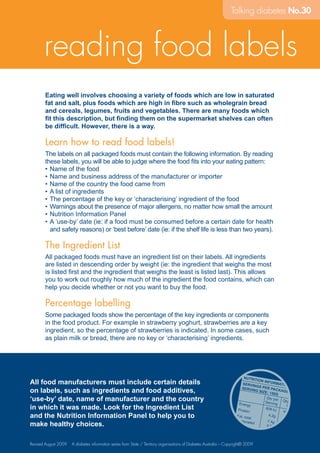



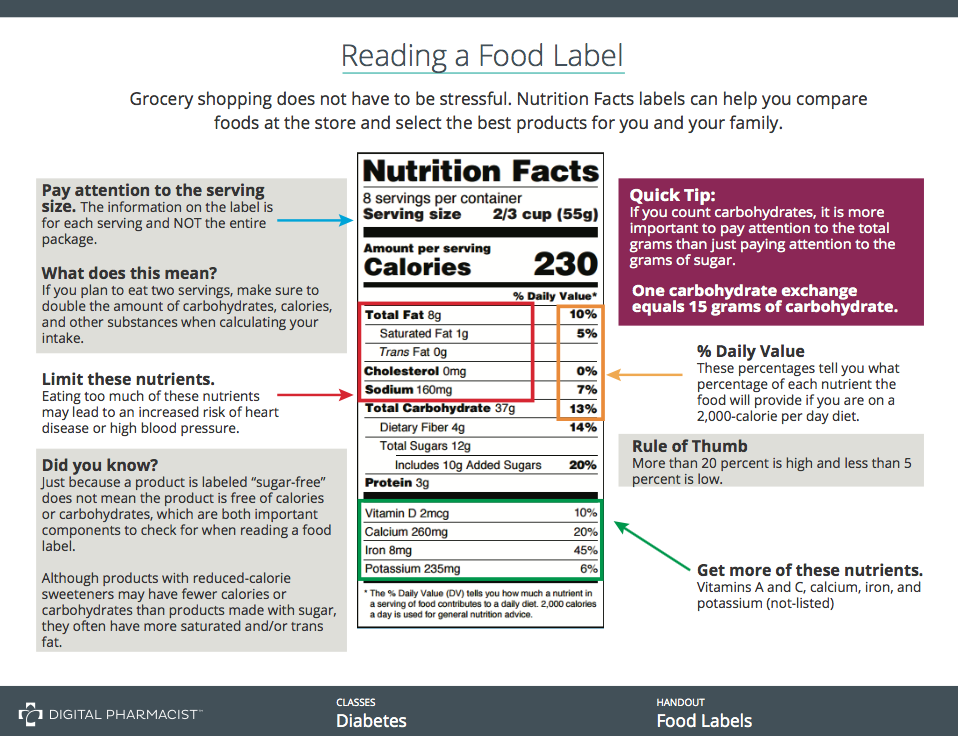

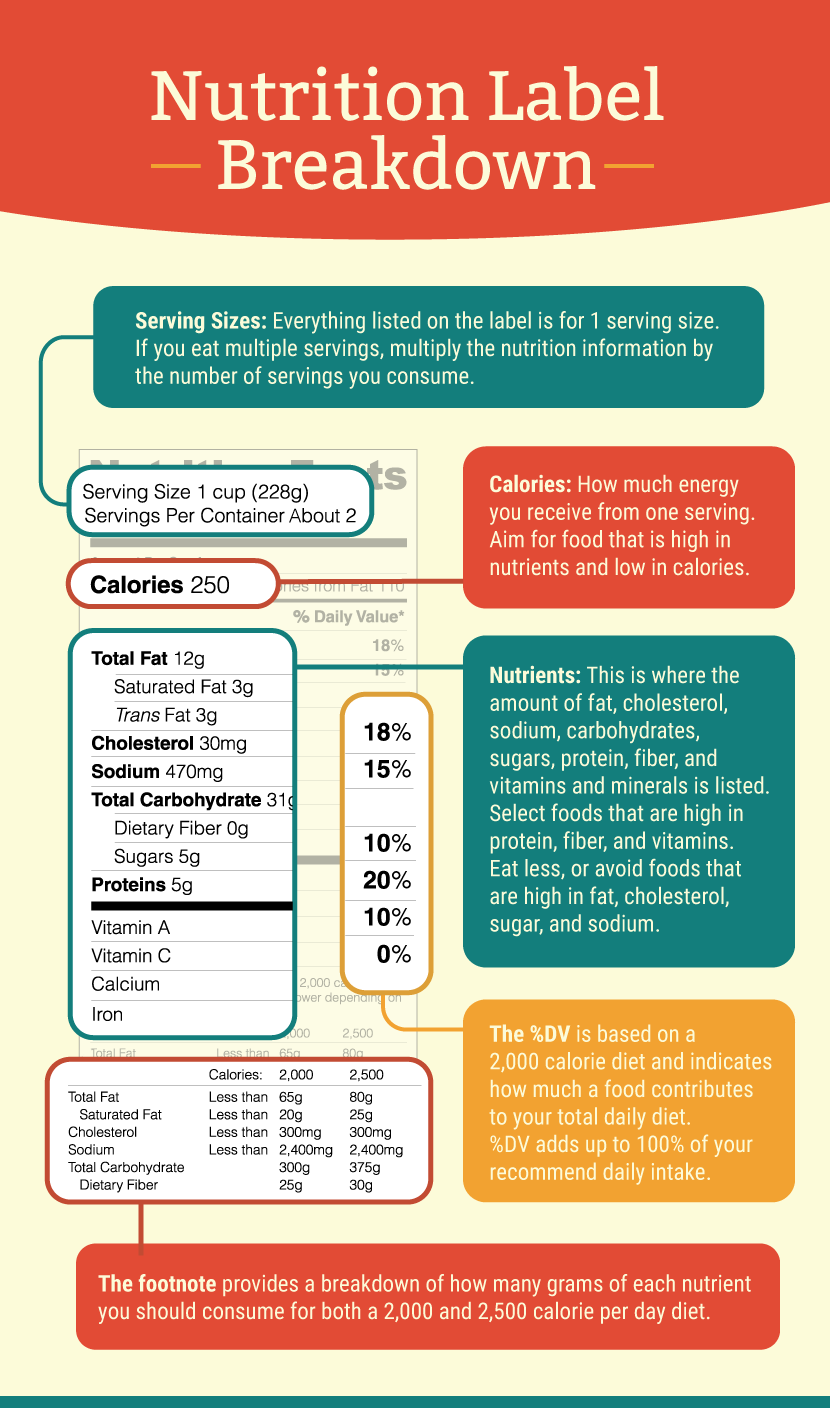
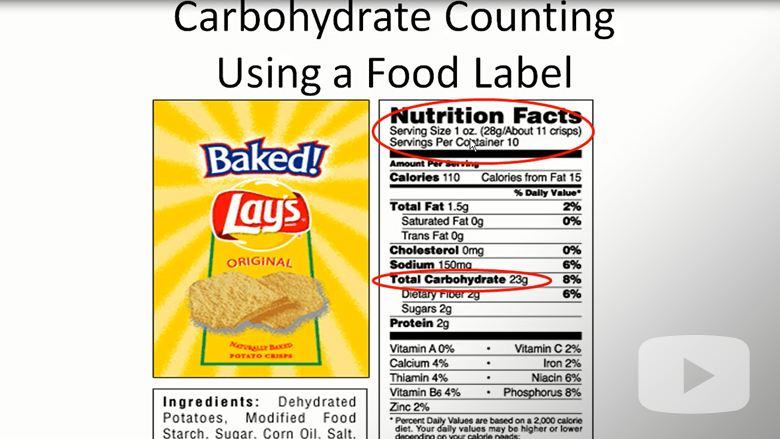

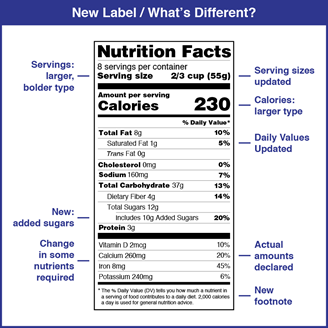

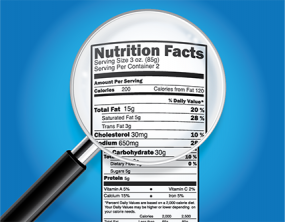

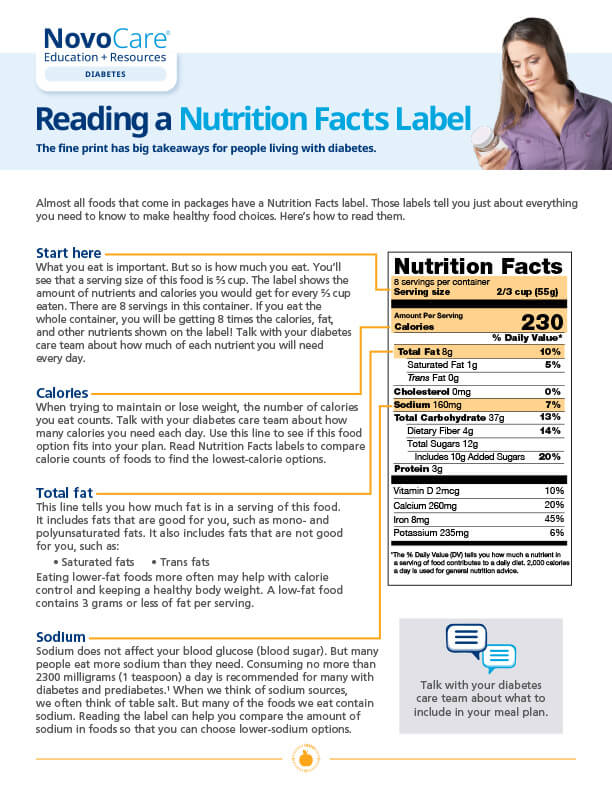


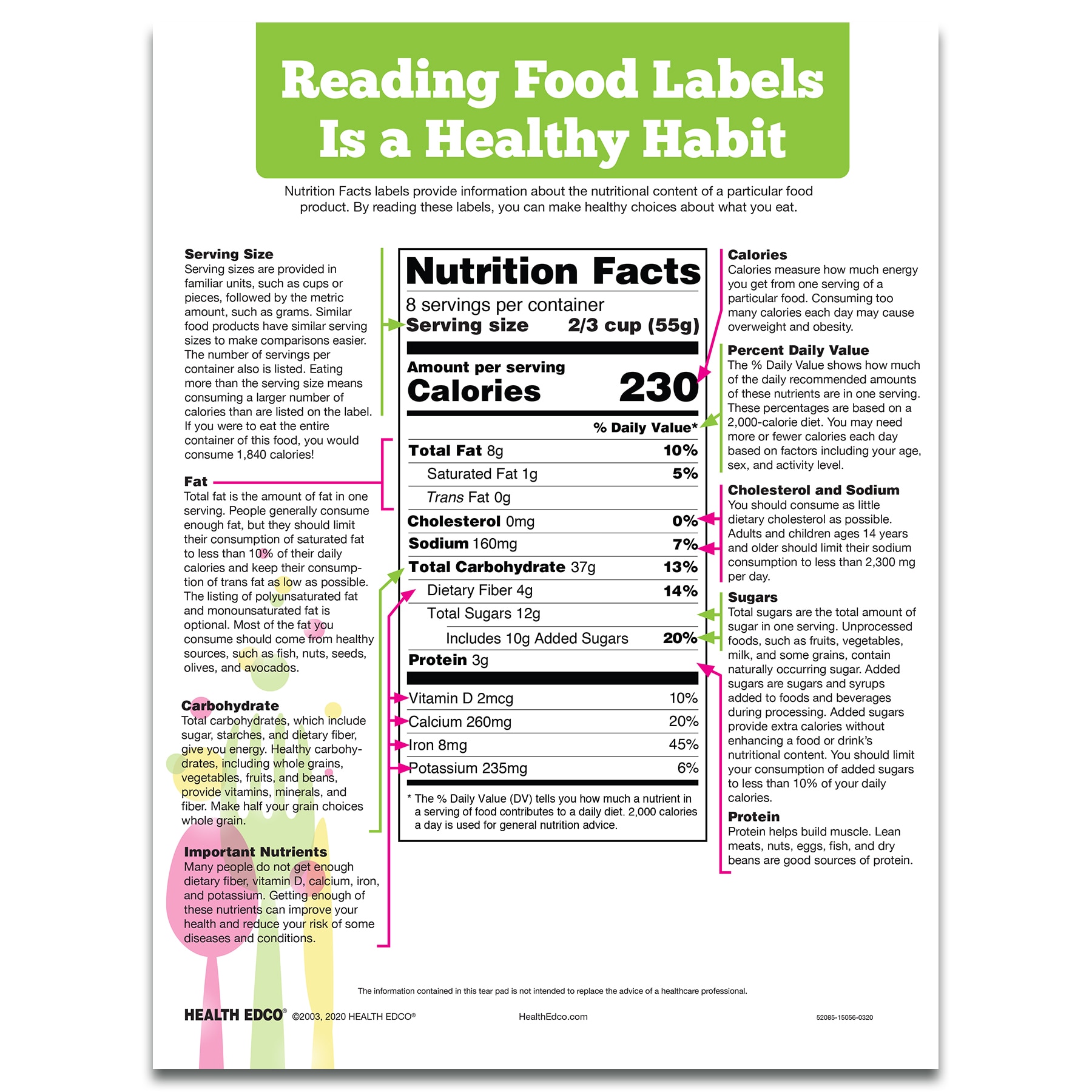
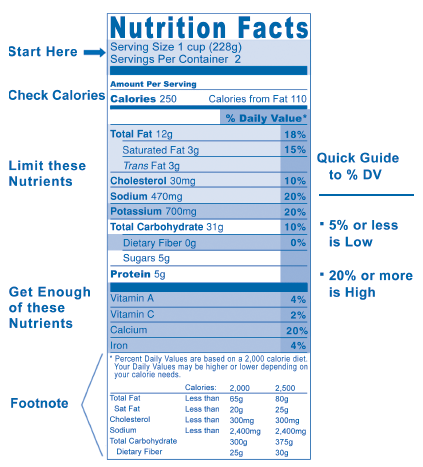

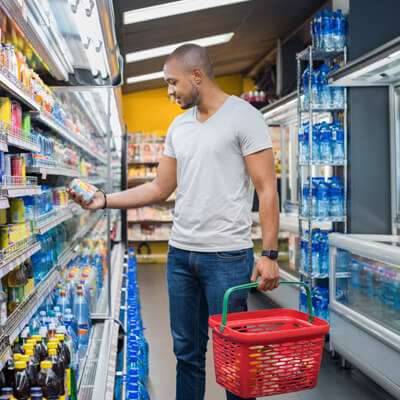
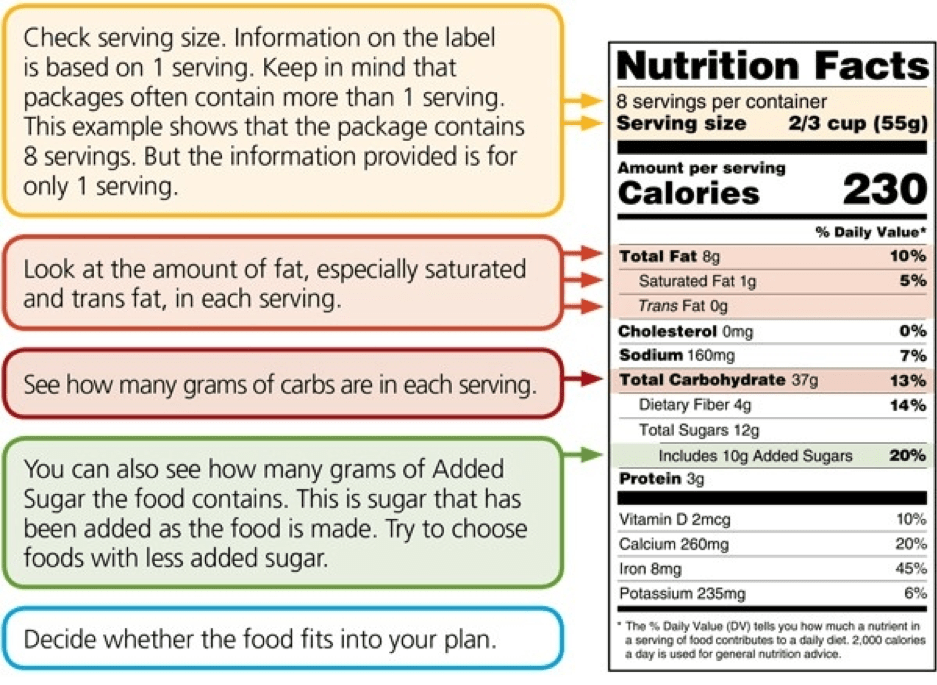



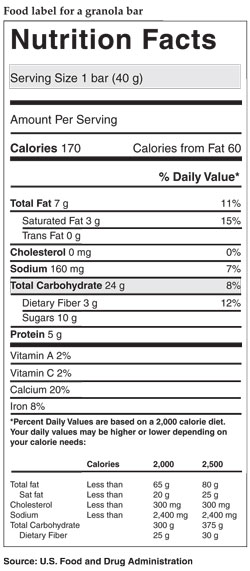
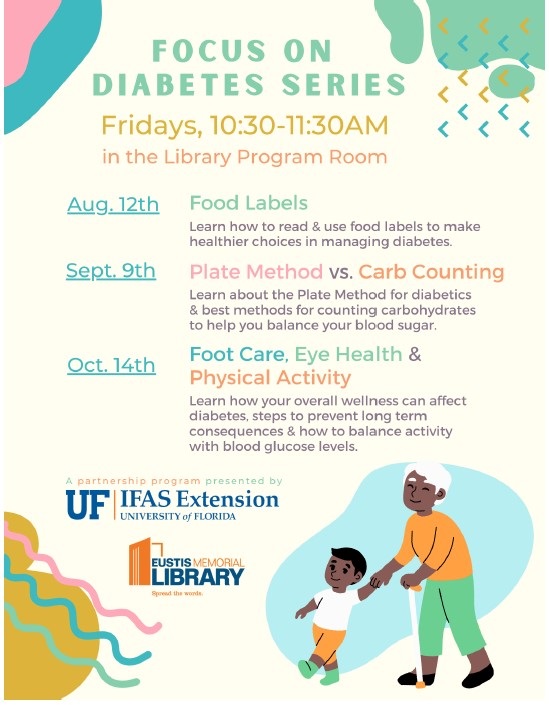
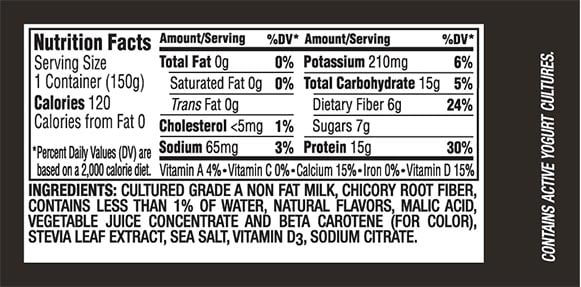
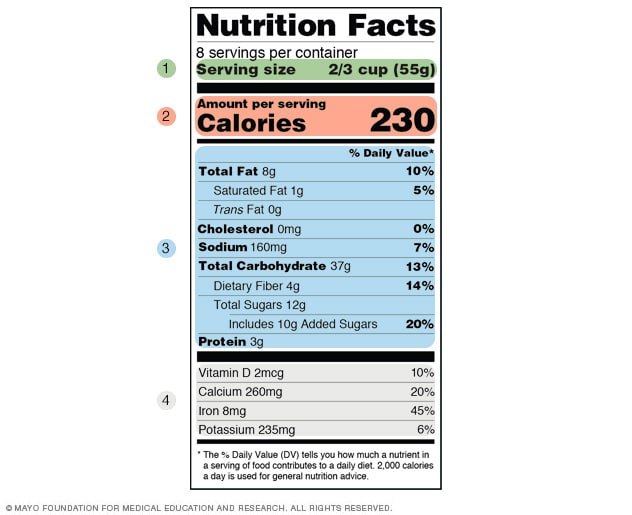
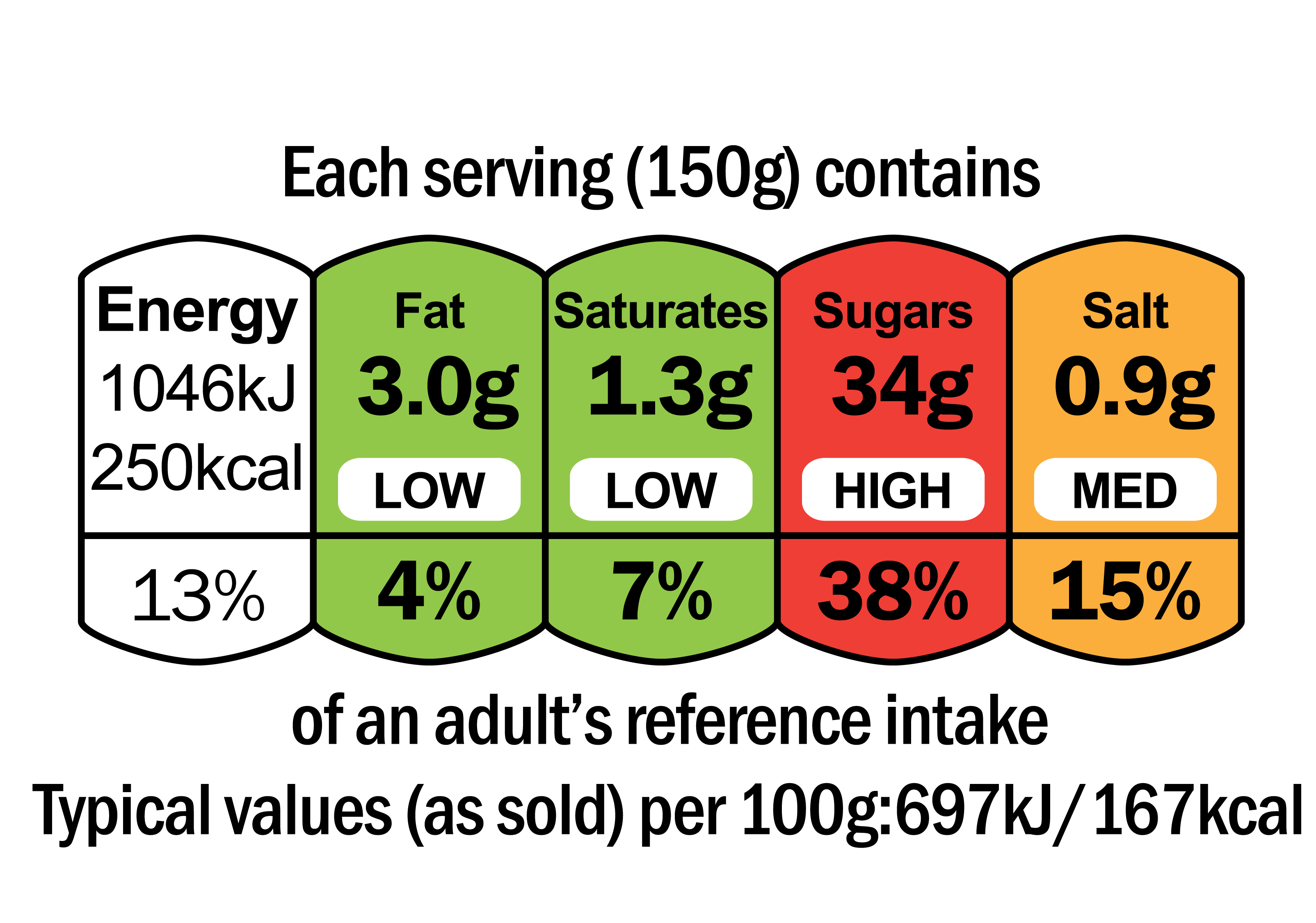
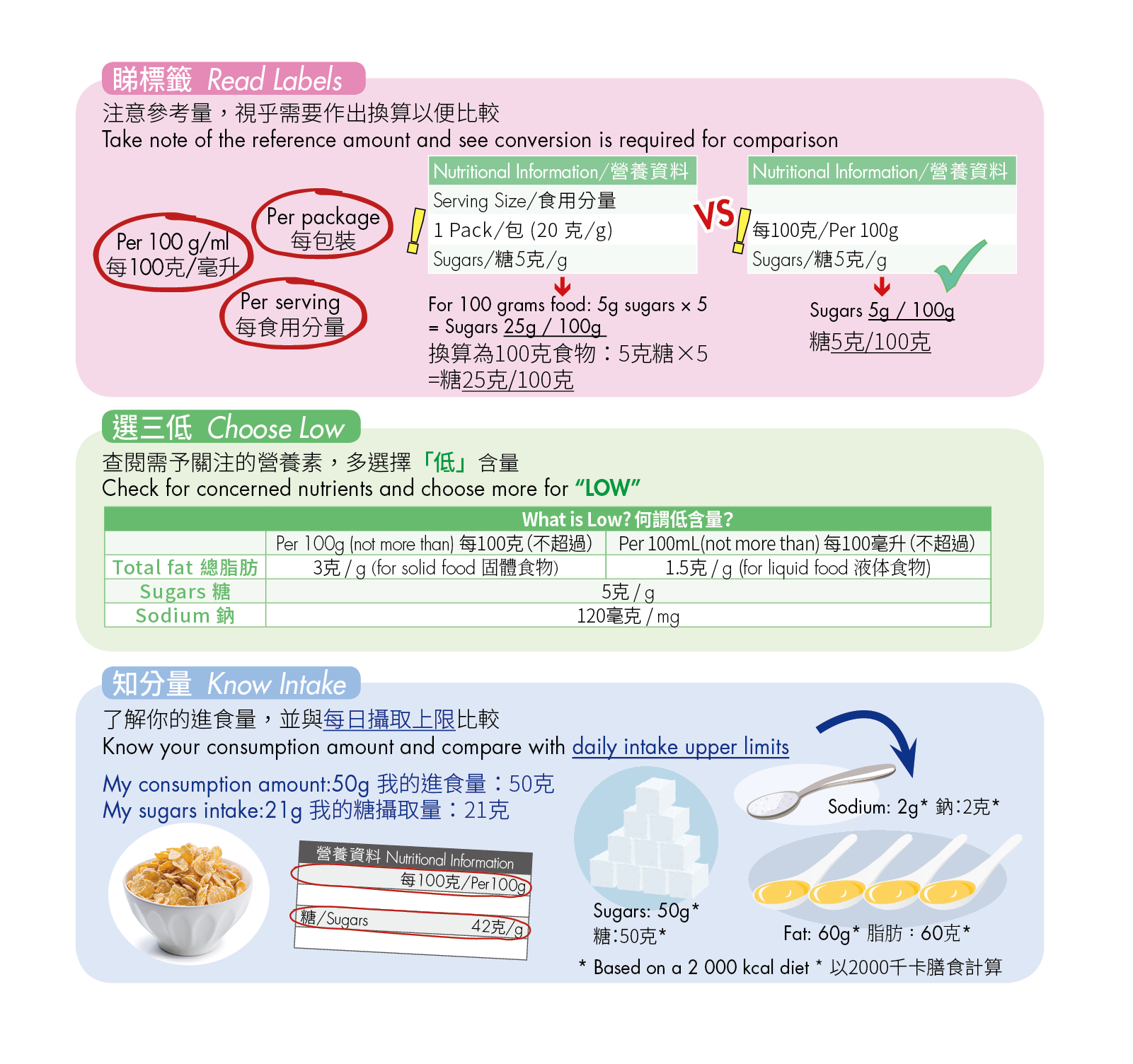

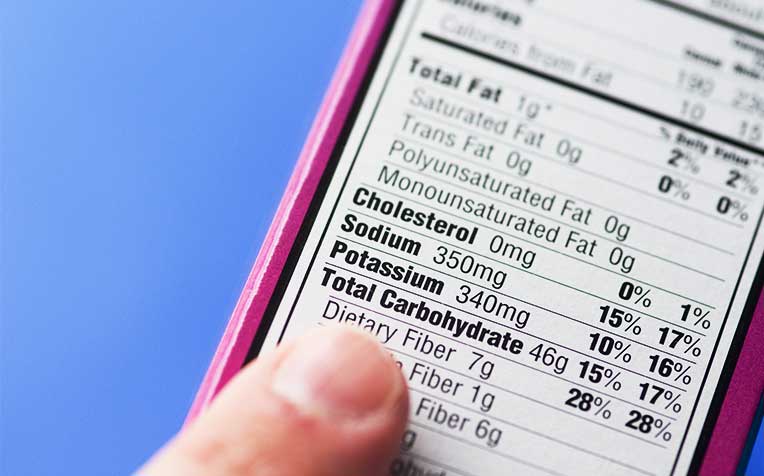

Post a Comment for "41 reading food labels diabetes"